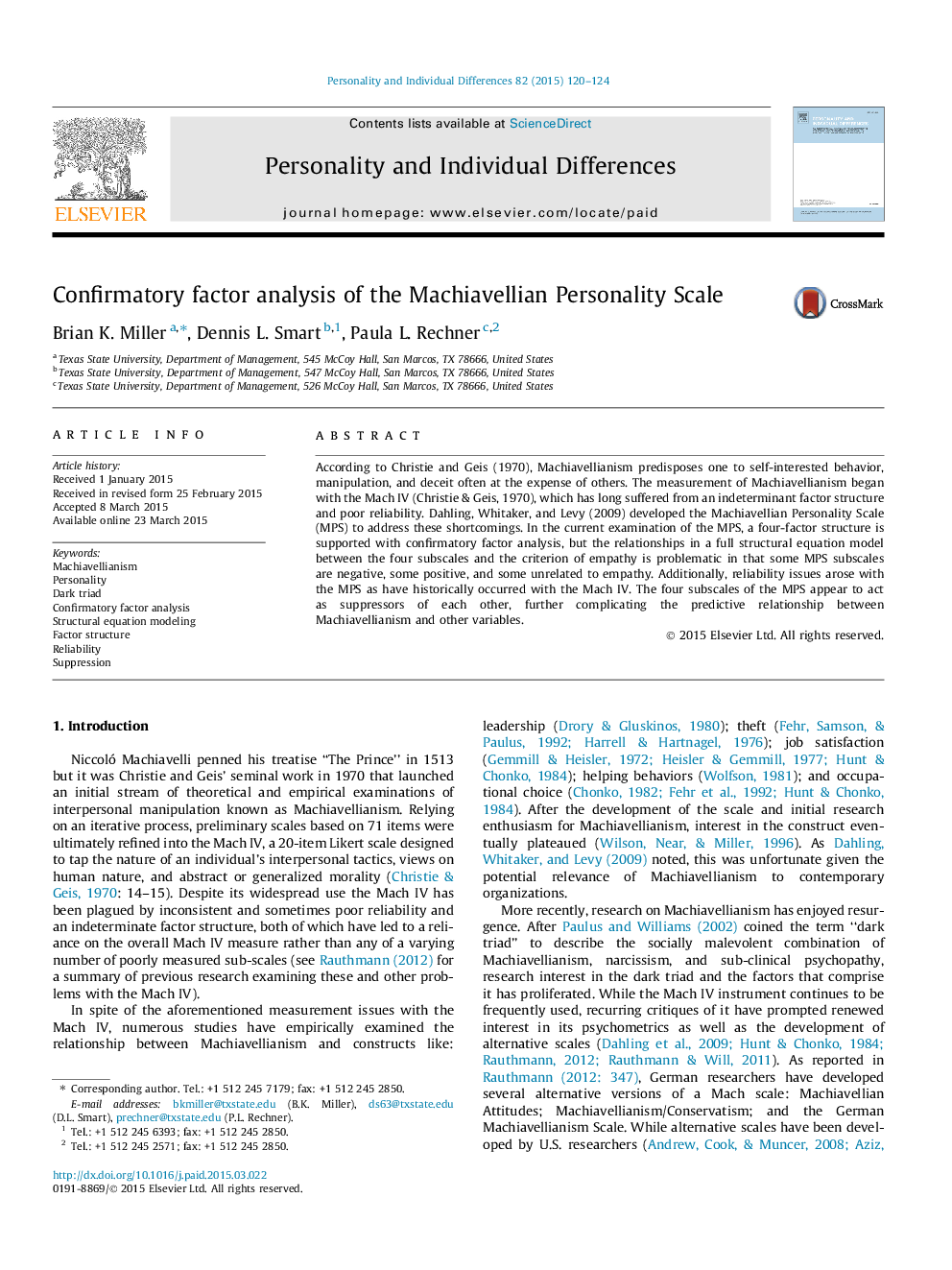| Article ID | Journal | Published Year | Pages | File Type |
|---|---|---|---|---|
| 890090 | Personality and Individual Differences | 2015 | 5 Pages |
•Machiavellian Personality Scale is analyzed with confirmatory factor analysis.•Fit of first-order factor solution is excellent.•Some sub-scale reliability is poor.•Sub-scales relate in opposite direction from each other in prediction of empathy.•Suppression exists in all possible subsets of sub-scales as predictors of empathy.
According to Christie and Geis (1970), Machiavellianism predisposes one to self-interested behavior, manipulation, and deceit often at the expense of others. The measurement of Machiavellianism began with the Mach IV (Christie & Geis, 1970), which has long suffered from an indeterminant factor structure and poor reliability. Dahling, Whitaker, and Levy (2009) developed the Machiavellian Personality Scale (MPS) to address these shortcomings. In the current examination of the MPS, a four-factor structure is supported with confirmatory factor analysis, but the relationships in a full structural equation model between the four subscales and the criterion of empathy is problematic in that some MPS subscales are negative, some positive, and some unrelated to empathy. Additionally, reliability issues arose with the MPS as have historically occurred with the Mach IV. The four subscales of the MPS appear to act as suppressors of each other, further complicating the predictive relationship between Machiavellianism and other variables.
